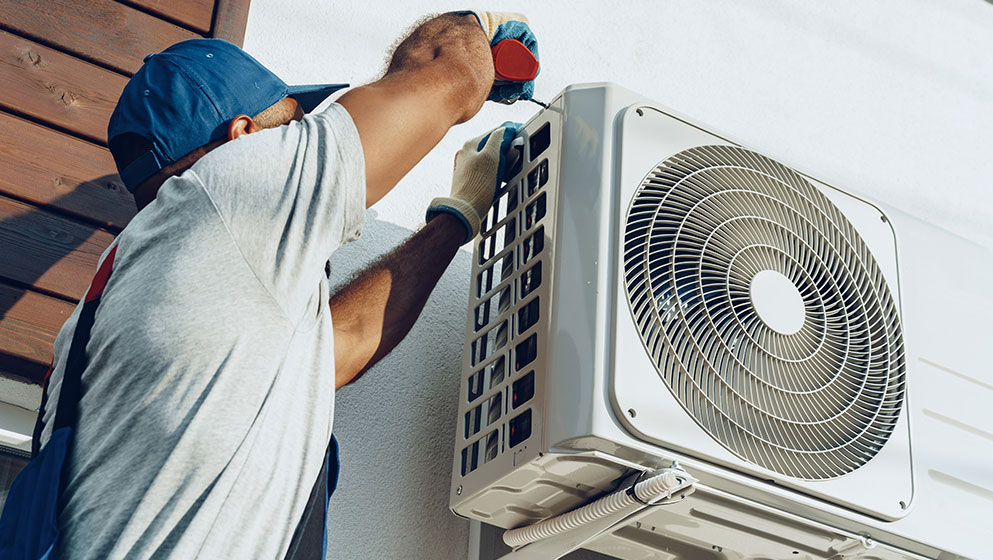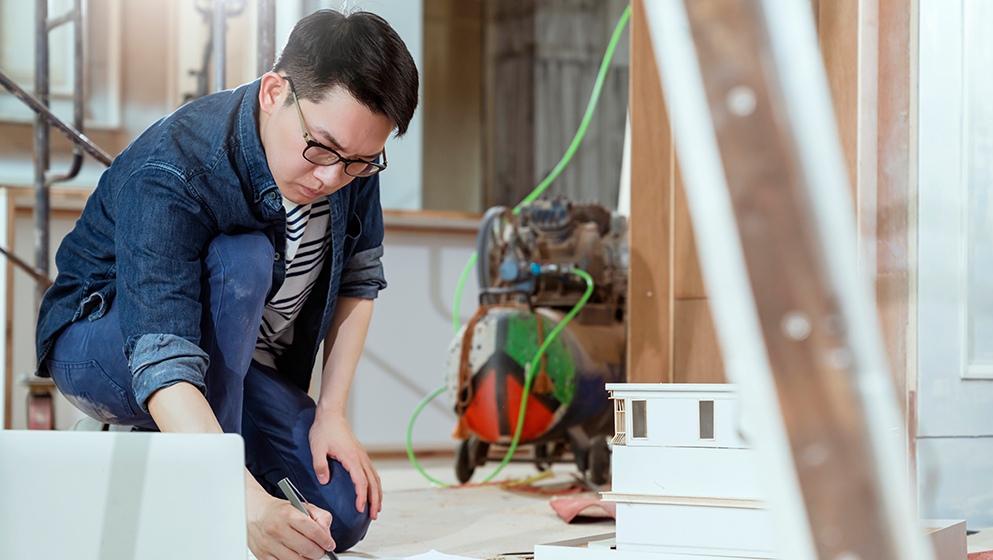Mold infestation in residential environments can have detrimental effects on both the structural integrity of the building and the health of its occupants. This article aims to explore the importance of mold inspections and identify the circumstances in which they are necessary.
By understanding the signs of mold infestation and the associated health risks, homeowners can take proactive measures to address the issue and mitigate the potential consequences. Early detection and prevention are key in minimizing the damage caused by mold, which can spread rapidly and extensively if left unchecked.
Professional mold inspections offer a comprehensive assessment of the extent of infestation and provide valuable insights into the necessary remediation measures. This article will highlight the benefits of engaging qualified professionals for mold inspections, emphasizing the expertise and specialized equipment they bring to the process.
By presenting evidence-based information, this article aims to contribute to a better understanding of the importance of mold inspections and the circumstances that warrant their consideration.
Signs of Mold Infestation in Your Home
Various signs can indicate the presence of mold infestation in your home, such as:
- – The distinctive musty odor
- – Visible black or green patches on walls or ceilings
- – The occurrence of unexplained allergic reactions among household members
Mold is a common household problem that can grow in damp and poorly ventilated areas. It thrives on moisture and organic materials, making bathrooms, kitchens, basements, and attics particularly susceptible.
While some molds are harmless, others can pose serious health risks. Common household molds, such as Aspergillus, Penicillium, and Stachybotrys, can release spores into the air, which can be inhaled and cause respiratory issues, allergies, and asthma attacks. Mold can also damage the structure of your home, leading to costly repairs.
Identifying and addressing mold infestation early on is crucial in preventing further damage and protecting the health of your household members.
Understanding the signs of mold infestation in your home is essential for prompt action and prevention. However, it is equally important to be aware of the health risks associated with mold exposure. These risks will be discussed in the subsequent section, shedding light on the necessity of mold inspections.
Health Risks Associated with Mold Exposure
This discussion will focus on the health risks associated with mold exposure. Specifically, we will address respiratory issues, allergic reactions, and a weakened immune system.
Mold spores can trigger respiratory problems such as coughing, wheezing, and shortness of breath. This is particularly true for individuals with asthma or other respiratory conditions.
In addition to respiratory issues, exposure to mold can lead to allergic reactions. These reactions may include symptoms such as nasal congestion, sneezing, and skin rashes.
Furthermore, prolonged exposure to mold can weaken the immune system. This can make individuals more susceptible to other infections and illnesses.
It is important to be aware of these health risks and take appropriate measures to prevent mold growth and exposure.
Respiratory Issues
Respiratory issues can arise as a result of exposure to mold, making mold inspections an essential step in ensuring a healthy living environment.
Mold spore exposure can trigger various respiratory symptoms, particularly in individuals with pre-existing respiratory conditions such as asthma or allergies. Inhalation of mold spores can lead to irritation of the respiratory system, causing symptoms such as coughing, wheezing, and shortness of breath.
Prolonged exposure can exacerbate these symptoms and may even lead to the development of respiratory infections or more serious conditions. It is crucial to identify and address any mold issues promptly to prevent further respiratory complications.
Therefore, conducting regular mold inspections is vital for safeguarding respiratory health and maintaining a safe living environment.
Moving on to the next section, allergic reactions to mold can also pose significant health risks.
Allergic Reactions
Allergic reactions to mold can result in significant health risks and should be carefully addressed. When individuals are exposed to mold spores, their immune system may react, causing a range of symptoms.
Common allergic reactions to mold include:
- – Nasal congestion
- – Sneezing
- – Coughing
- – Itchy or watery eyes
- – Skin rashes
In some cases, individuals may experience more severe symptoms such as difficulty breathing, asthma attacks, and even anaphylaxis. It is important to note that the severity of allergic reactions can vary depending on the individual’s sensitivity and the type of mold present.
Treatment for allergic reactions to mold typically involves:
- – Avoiding exposure to mold
- – Using antihistamines to alleviate symptoms
- – Seeking medical attention in severe cases
Understanding the symptoms and seeking appropriate treatment is crucial in managing allergic reactions to mold and preventing further health complications. Moving forward, it is important to consider the potential impact of mold on a weakened immune system.
Weakened Immune System
A compromised immune system can increase susceptibility to various health complications, potentially exacerbating the effects of mold exposure. Individuals with weakened immune systems are particularly vulnerable to mold-related illnesses.
When the immune system is weakened, it becomes less effective in fighting off infections and toxins. Mold spores can trigger allergic reactions and respiratory issues in individuals with weakened immune systems, leading to symptoms such as coughing, wheezing, and difficulty breathing.
Moreover, mold exposure can also cause invasive fungal infections in individuals with compromised immune systems, which can be life-threatening. Therefore, it is crucial for individuals with weakened immune systems to be aware of the potential risks associated with mold exposure and take proactive measures to prevent it.
Early detection and prevention play a vital role in minimizing the impact of mold-related illnesses on individuals with immune system vulnerabilities, ensuring their overall well-being and health.
Importance of Early Detection and Prevention
Early detection and prevention play a pivotal role in mitigating the potential hazards associated with mold growth. When it comes to mold, prevention is key. By implementing effective prevention methods, such as controlling moisture levels and ensuring proper ventilation, individuals can significantly reduce the likelihood of mold growth in their homes or workplaces.
Early intervention is equally important in minimizing the negative impacts of mold. Promptly addressing any signs of mold, such as musty odors or visible growth, can help prevent its spread and limit the damage it can cause to both property and health.
Regular inspections and monitoring can aid in early detection and prevention. Conducting routine checks for moisture buildup, water leaks, or condensation can help identify potential mold-prone areas. Additionally, maintaining a clean and dry environment can deter mold growth. This includes promptly addressing any water damage or leaks and ensuring proper ventilation in areas prone to moisture accumulation, such as bathrooms or basements.
By focusing on early detection and prevention, individuals can significantly reduce the need for professional mold inspections. However, in certain situations, such as persistent mold issues or when health symptoms arise, it may be necessary to consider a professional mold inspection. These inspections provide a comprehensive assessment of the extent of the mold problem and can help determine the appropriate course of action to address it effectively.
When to Consider a Professional Mold Inspection
A professional mold inspection should be considered after experiencing water damage or flooding in order to identify any potential mold growth.
Despite cleaning efforts, if mold issues continue to persist, it is advisable to seek the expertise of a professional mold inspector to assess the extent of the problem and provide appropriate remediation recommendations.
Additionally, when buying or selling a home, a professional mold inspection is recommended to ensure the property is free from any hidden mold issues that could potentially impact the health and safety of its occupants.
After Water Damage or Flooding
Following water damage or flooding events, it is crucial to conduct mold inspections as a preventive measure against potential health hazards and structural damage.
Water damage restoration efforts alone may not be sufficient in addressing the underlying mold issues. Mold has the ability to grow rapidly in moist environments, and water damage provides the ideal conditions for its proliferation.
Mold remediation is essential to remove existing mold colonies and prevent further growth. Professional mold inspections can identify hidden mold, assess the extent of the damage, and determine the appropriate remediation strategies. These inspections are typically conducted by certified mold inspectors who possess the necessary expertise and equipment to accurately identify and assess mold growth.
By promptly addressing mold issues after water damage or flooding, individuals can mitigate the risks associated with mold exposure and prevent long-term structural damage.
Transitioning into the subsequent section, persistent mold issues can arise despite thorough cleaning efforts.
Persistent Mold Issues Despite Cleaning
After water damage or flooding, it is crucial to take immediate action to prevent the growth of mold. However, even after thorough cleaning, persistent mold issues may arise. This can be a cause for concern as it indicates that there might be hidden mold sources that are not easily visible or accessible.
While cleaning visible mold can help to improve the air quality temporarily, it may not address the underlying problem of persistent mold growth. In such cases, a mold inspection becomes necessary to identify the root cause of the issue and to develop an effective remediation plan.
A thorough inspection will involve identifying hidden mold sources, such as behind walls or under flooring, and assessing the extent of the mold contamination. By understanding the underlying issues, appropriate measures can be taken to prevent further mold growth and ensure a safe living environment.
Transitioning into the subsequent section about ‘buying or selling a home’, it is important to note that mold inspections are also crucial in these situations as they can uncover hidden mold problems that may affect the value and safety of the property.
Buying or Selling a Home
When considering the purchase or sale of a home, it is crucial to prioritize the evaluation of potential mold issues through a thorough inspection process. A home inspection is an essential step in a real estate transaction as it helps identify any existing mold problems or conditions that could lead to mold growth in the future. Mold can have serious health implications and can also cause structural damage to a property if left untreated.
Professional mold inspections are necessary to accurately assess the extent of a mold problem and provide recommendations for remediation. These inspections are conducted by trained professionals who have the expertise and equipment to detect hidden mold and identify the source of moisture that may be contributing to its growth. By investing in a professional mold inspection, both buyers and sellers can ensure a smooth and informed transaction.
Transitioning to the next section, understanding the benefits of professional mold inspections is equally important in this process.
Benefits of Professional Mold Inspections
Professional mold inspections offer numerous advantages, providing a comprehensive assessment of mold presence and its potential risks, allowing for informed decision-making regarding remediation and ensuring the safety and well-being of individuals and the environment.
One of the main benefits of professional mold inspections is the expertise and experience that professionals bring to the table. Certified mold inspectors possess in-depth knowledge of mold growth patterns, the different types of mold, and the potential health risks associated with exposure. This expertise enables them to conduct a thorough assessment and identify hidden mold that may not be easily detectable.
Another advantage of professional mold inspections is the ability to debunk common misconceptions. Many individuals believe that mold inspections are unnecessary if there is no visible mold growth. However, mold can thrive in hidden areas such as behind walls or under floorboards. Professional inspectors have the necessary tools and techniques to detect mold growth in these hidden areas.
Furthermore, professional mold inspections provide a detailed report outlining the extent of mold contamination and recommendations for remediation. This comprehensive assessment allows homeowners to make informed decisions regarding the necessary steps for mold remediation and ensures that the process is carried out effectively.
In conclusion, professional mold inspections offer numerous benefits over DIY inspections. Their expertise, ability to detect hidden mold, and provision of comprehensive reports make them an invaluable resource for homeowners in ensuring the safety and well-being of their homes and the people who inhabit them.
Conclusion
In conclusion, mold inspections play a crucial role in maintaining a healthy and safe living environment. By identifying signs of mold infestation, such as musty odors and visible growth, homeowners can take proactive measures to prevent further spread and potential health risks.
Early detection and prevention are key in avoiding costly damages to property and mitigating health problems associated with mold exposure. It is recommended to consider a professional mold inspection when there are persistent moisture issues or if there are suspicions of hidden mold growth.
Professional inspections provide comprehensive evaluations and testing, ensuring accurate results and effective remediation strategies. Overall, investing in professional mold inspections offers numerous benefits, including peace of mind and the assurance of a mold-free home.





